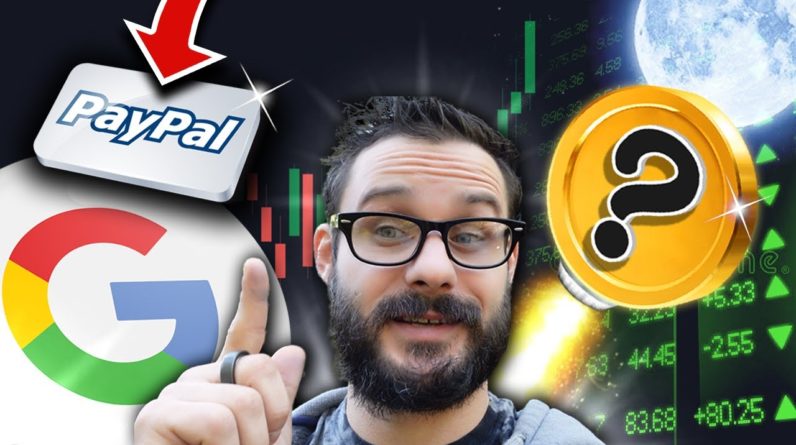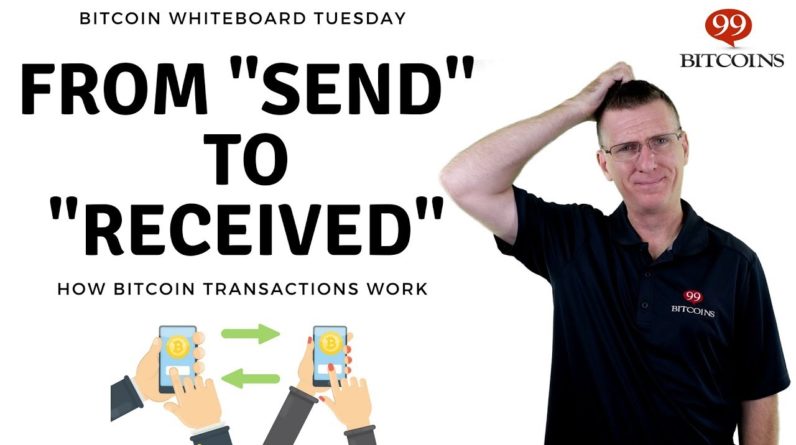
I've always wondered, why should we listen
to the stock market every night? 70 Stocks Close at a Record High So Far… Huge Stocks Rise… Record Records
in Initial Public Offerings Investors who ride the wave… When the stock market is booming, they make us believe that the economy is booming. "A record pace" and in "America", the stock market has generally been booming
for about 40 years. If the stock market collapses, the wealth and prosperity of the American economy will be lost with it. The stock market
indicates that we are on our way to prosperity. A sharply elevated stock market
would be in everyone's interest. The stock market has risen
nearly $3 trillion since the election. But if we add up all the goods and services
that are bought and sold in the United States, the actual economy is not growing as fast as it used to.
Average wages have barely moved in decades and the average American family's net income has yet to recover from the Great Recession. What exactly does the stock market measure then? "NETFLIX ORIGINAL DOCUMENTARIES" The stock market is the measure of "America's" prosperity. Look at the Dow, it's up by… The Nasdaq index recently hit 5,000 points. Investors yearn… Stakes! A new kind of gold rush We are all watching
this global economic expansion… We have now entered a historic phase … Stock buybacks… It is a flawed philosophy at its core. “The Stock Exchange” To understand what the stock exchange measures, it is helpful to imagine a very simple establishment like the lemonade stand. Jill is a huge success. But I'm thinking of a bigger project. I tried to get a loan
but the bank said the risk was too high. Wealthy investors did not buy. Jill had another choice. She can establish a public company and give all those wishing
an opportunity to invest in her company.
There is what is called an initial public offering. Investors pay a certain amount,
for example, dollars, to own a small division or share in a "Jill" company. Jill sells a batch of shares. And my lemonade empire thrives! True, Jill
can use the money to open new kiosks, which means more profit. Jill can invest a portion of these profits
in developing new goods. It can also return
some of that money to investors. These are called stakes.
She doesn't have to, but it only gets people excited
about her company and makes them more likely to buy her stock, like Sam, who was sick
on the day of the IPO, but finds that … Jill is the smartest girl in the whole world, and I know The lemonade stand issue will be a great success. He offered to buy some shares
from one of those who had originally invested at double the price I had paid for it. – He's thinking…
– If I follow Jill at the same pace, I can sell these shares
for a bigger amount later. This is the stock exchange, people buy and sell small parts of companies, according to what they think the value of the shares will be
in the future. However, in reality, this happens thousands of times per second
all over the world. There are stock exchanges everywhere but the New York Stock Exchange is the big arena. It's been around since 1792 when 24 stockbrokers,
donning their best suits and hats, gathered under a tree
on Wall Street in New York.
Today, it is where the
shares of major traditional companies such as IBM and GE are traded. The Nasdaq is like a smaller, cooler brother. The Nasdaq index was born in 1971 and
does not have a specific location, as all trading is done electronically. There we find technology companies
such as "Apple" and "Facebook". So in America, if you want to know
the state of the stock market, you must know the state of these two stock exchanges. This is where indicators come in. Indices take a large selection of stock prices and
turn them into a clean number. The S&P 500 index tracks
500 of the largest companies on both exchanges, while the Dow is more exclusive and tracks only 30 companies it considers the most important. In 2015, he left AT&T and replaced it with Apple. The Dow and S&P
are two big US indices but other countries have their own indices to measure their stock market.
German stock index, "DAX"… "London stock index", "FTSE 100"… "Nikkei"… "Shanghai" index… Today, the shares of many major companies are traded
in the world in public markets, but this was not always the case. There was one man, often
one man, who made all the decisions. The great corporations of the twentieth century,
most of them at the time, had only one shareholder
such as Andrew Carnegie. (Andrew Carnegie), Steel , Vanderbilt , Cornelius Vanderbilt, Railroads, and Rockefeller. (John Rockefeller, Oil) These guys have tight control of their companies. These things began to change
at the beginning of the 20th century.
We're starting to see companies like General Motors , General Electric, and RCA emerge. Companies have found what Jill has discovered, which is that if they allow the public to buy shares, they can grow much faster. Shareholders want to make money. So, if the CEO
makes a bad decision, they will start selling their shares
which will lead to a drop in prices. The opposite is also true,
the prospect of future profit encourages people to take risks and invest
in new ideas. This is the idea of the stock market as a positive drive . It pushes companies to make sound decisions, to have more money to
pay to shareholders, and more money to grow and create jobs
that's good for everyone. By the mid-20th century, the American public corporation had established itself as one of the most powerful,
effective, and useful organizations in the world.
There is a sense of growing prosperity and the phone company is a grateful participant. In the decades following World War II, the stock market contributed to the
height of American common prosperity. The new phase has begun,
let's make the system more democratic and grow the flow of capital to finance business. The foundation
was actually supposed to be a vehicle for securing investment opportunities,
not only for the very wealthy, but for ordinary Americans as well. It brings high returns to investors. Don't you think we should invest, honey? Millions of secure, well-paid jobs have produced innovative goods that have been
sold all over the world. Directors and executives considered themselves
custodians or custodians of large public institutions
that were meant to serve not only shareholders, but also bondholders, suppliers, employees, and society at large. Buick has made merchandise for everyone,
men and women. Buick's general manager, Evan Wales, intervened. Dupont… Contemporary chemistry and industry united to serve contemporary America. These public institutions
helped build the American middle class, and for those who knew
how to deal with it , stock trading could make them rich.
Like this guy. I work on the railroad… Popular music is just his hobby,
but he's a billionaire investor … Warren Buffett… the biggest giant on Wall Street. The most famous investor in "America". Investor Warren Buffett has a net worth of
$84 billion. Buffett is known for his definite investing style. Value investing,
careful analysis of the company, review of the balance sheet, audit of the company's business. But if you don't have time to do that,
here's a tip from the man himself. Buy a low-priced S&P 500 index fund
. An index-linked fund
puts a little of your money in all of the index companies. Thus, you are linked to the stock exchange as a whole to benefit from it. The second option is to give your money
to professional investors who will try to beat the stock market
for a fee.
Buffett once bet a
million dollar hedge fund that over 10 years, the index fund would make more money and win the bet. Picking stocks is a difficult game, but there is a common strategy. This guy is John Maynard Keynes. You may remember his legendary moustache. He is the one who created it. Keynes won a Nobel Prize and was one of the most influential economists
of the 20th century. Note that newspapers do one thing. The newspaper was devoting an entire page to pictures of pretty faces and you were supposed to choose the 6 most beautiful faces and put them in order and send your answer to the newspaper. The newspaper classified the faces
according to the number of votes they received, and the winner was the one whose choice matched the
choice of the largest number of people. Let's think about this contest. Do I choose what seems to me the most beautiful faces? No, I have to choose
what others find the most beautiful faces. This is what happens in the stock market. It is not the actual value of
companies that drives their stock prices.

It's the most popular story
that people believe about these companies. Sometimes the stories are backed up by facts. Chipotle stock has fallen by more than a third of its value. This happened after several infections, including E. coli, salmonella and
norovirus, were linked to the chain. An emissions scandal rocked Volkswagen and
drove its share price down. But sometimes these stories are not true. Internet companies have been the
most popular and profitable investments for a long time. The stock has skyrocketed. "Lycos", "Xcite" and "Yahoo"… Internet stocks continue their
shuttle rise. The story in the 1990s was that Internet companies would take over the market. And that these companies should not try to make profits. This is a good story and it is partially true.
There are companies like Amazon and Google. But the problem is that no one has succeeded
in assessing the story and determining how high the stock market has gone up. Is it infinitely high? Has the economy changed forever? You know there's something wrong with everyone talking
about something like this. It's like a bubble. It is a cumulative effect. It keeps getting bigger
but it can't go on forever. Internet companies' honeymoon is coming to an end
in many parts of the world. Lots of Internet companies are facing doom. 300,000 technical jobs have disappeared. It was described as breathtaking. The points fell in a precedent
that the US market had never seen, leaving traders and investors in a state of shock. When the stock market bubble burst, it not only hurt investors,
it wreaked havoc on the entire economy.
Millions of people could lose their jobs,
companies could collapse, and people could almost lose their severance pay. But even when the stock market is booming
and investors are making money, it can hurt the economy, too. We are heading into the worst energy shortage since World War II. Drivers started queuing
before dawn, hoping to refuel to get through the day. Are you upset about the high prices? I am very frustrated and
disgusted with the whole situation.
There was a general sense of concern that something was wrong with the US economy. In the end, the blame was placed
on major public institutions and the way they operate and run. Here's Milton Friedman, the prime mover
in assigning blame. He is a famous economist who
was invited to participate in popular talk shows to help people understand his philosophy. Have you ever questioned capitalism? And if it's okay to act
out of greed? Do you know any society that is not driven by greed? Remember the wheel?
Friedman wasn't a fan of it. In his opinion, it should include one thing, the
shareholders. In 1970, he published a highly successful study. The famous article in the New York Times said that because corporations are owned by
their shareholders, the only duty of the corporation
was to make profits.
Gordon Gekko's character
in the movie "Wall Street " embodies Friedman's philosophy. You own the company. That's right, you shareholders, all of you have been
duped by these bureaucrats. Greed, if you will, is a good thing. Institutions took his advice. They began by tying the salary of top executives to the stock price performance in the stock market. If 80 percent
of the CEO's salary is based on the next year's stock price performance, the manager will
inevitably make sure the stock price goes up. Even if the results will hurt employees, customers, society, the environment and even the organization itself in the long run. Executives invested more money to raise the stock price in the short term, such as reducing expenses or buying back a pool of their company's shares to reduce the number of shares offered in the market
and artificially raise prices.
Between 2007 and 2016, companies in the S&P 500 spent more than half their revenue. Another 39 percent was spent and
paid to its shareholders in the form of shares so that there was not enough left for it to raise wages
, expand or develop new products, and these are good things for the economy in the long run. If you have a long-term vision, that 100 years from now,
you still want the company to exist, the company may do something different, but you will still want to work in the field.
So the choices you make about investments, people, and capital
are different than if you wanted to invest
and generate profits in 24 months.
In 2012, Wassau Paper Company
was investing to convert its factories
from making printing and writing papers to making tissue paper. But a hedge fund bought a
bunch of stock and pushed the company to limit
its expenses instead. Their argument was that there was no need to do so. And they prefer that we increase the quota. We, as management, objected to that. We made concessions and offered to reduce our salaries so that the door to solutions would remain open. Wassau Paper Company says it intends to
close the Brokaw plant by March 31… leaving about 450 people out of work. This is tragic news, not only for
the workers who will lose their jobs but for the Brokaw community
where the paper company was started. December 7th, and I'll never forget that day, it wasn't Pearl Harbor , I was burying my dad that day, and I lost my job the same day. Then the next day, I went to work and it was a mess. People are crying… and wondering why. It was shocking. My concern is that we have evolved
to achieve this short-term view of shareholder rights, as opposed to a long-term view
of shareholder responsibilities.
This trend prevailed for a while and grew stronger and more important. It has already threatened our institutions' ability to pursue projects that lead
to long-term institutional sustainability and economic growth. Laying off workers, closing factories and
keeping salaries low. These are bad for the economy in general but could be great
for the company's short-term earnings and that's what matters to the stock market. The stock market had an amazing start… a new record today… a historic day on Wall Street… The US economy is advancing and
with it the speculators on Wall Street. This was a big day on Wall Street… the S&P 500 rose
to new historical highs. As the stock market grew, so did the
salaries of CEOs. In 1973, the average salary of an executive general manager was
22 times that of the average worker. In 2016, it exceeded him by 271 times. With the stock market booming, fewer Americans benefited from it. The share of Americans
who invested in the stock market fell to its lowest level in 20 years, with the withdrawal of the middle class. It is not surprising that as the stock price
in the United States has risen, so has inequality.
But it doesn't have to be this way. The stock exchange gives people the opportunity to decide
which companies are worth succeeding and which ideas are worth betting on. There is an appeal in giving people games to play. We look at the successful countries,
all of them have stock markets, and the countries that tried to stop them are now changing their minds and re-establishing them. Shareholders can influence
the performance of companies and the interests they take into account. Most of us think about the distant future. We care about our neighbors, our children and our grandchildren. We have values and ethics and we wa t our companies to make money by do ng things that are good for the world, not b hurting people and destroying the world This is what most shareholders actually want.
Translation of "Mural Dou".




